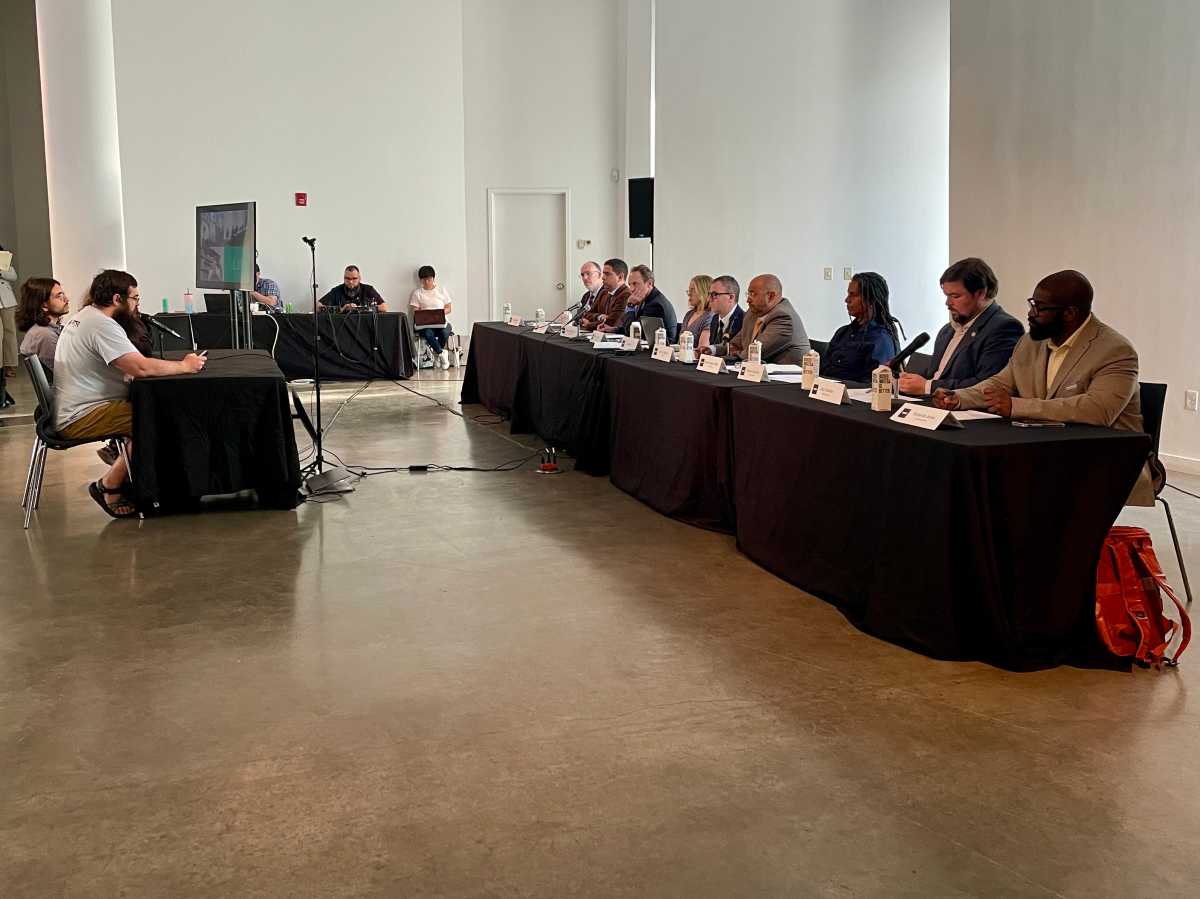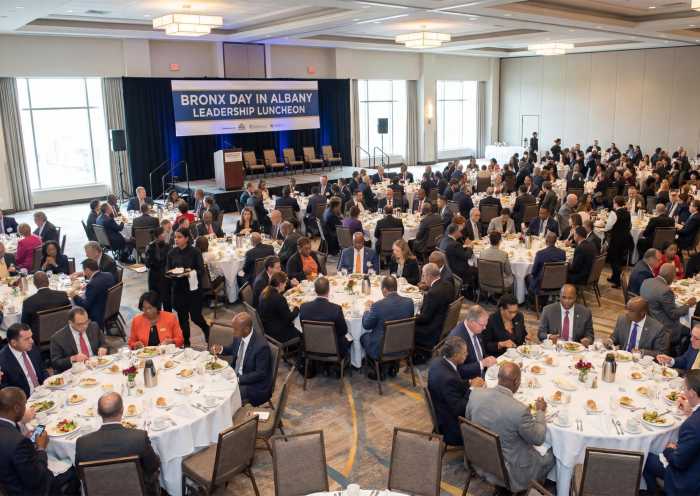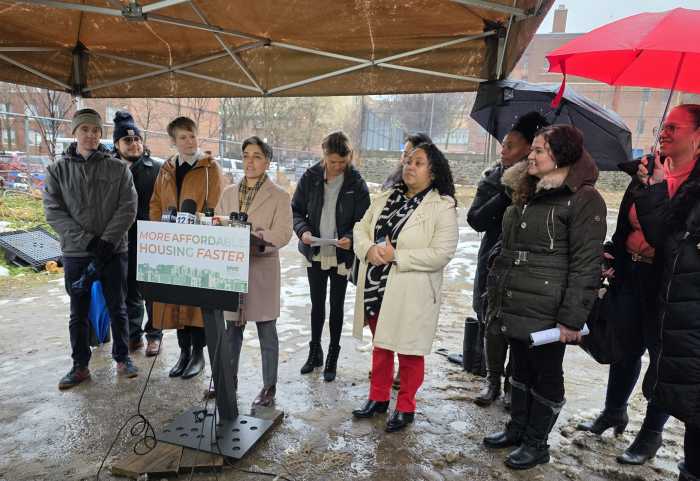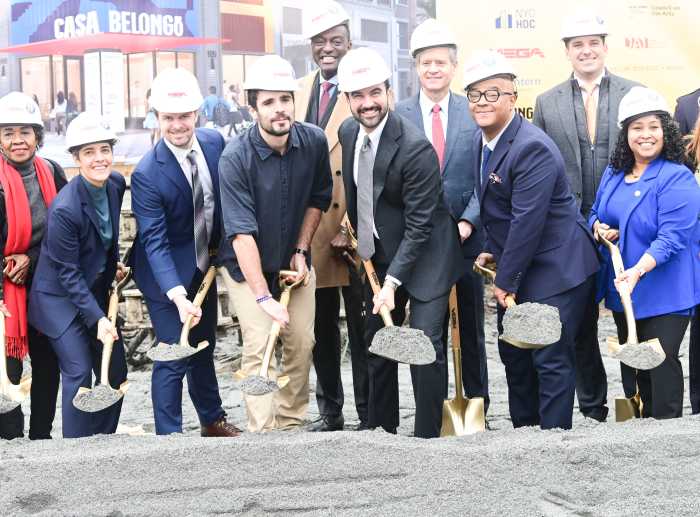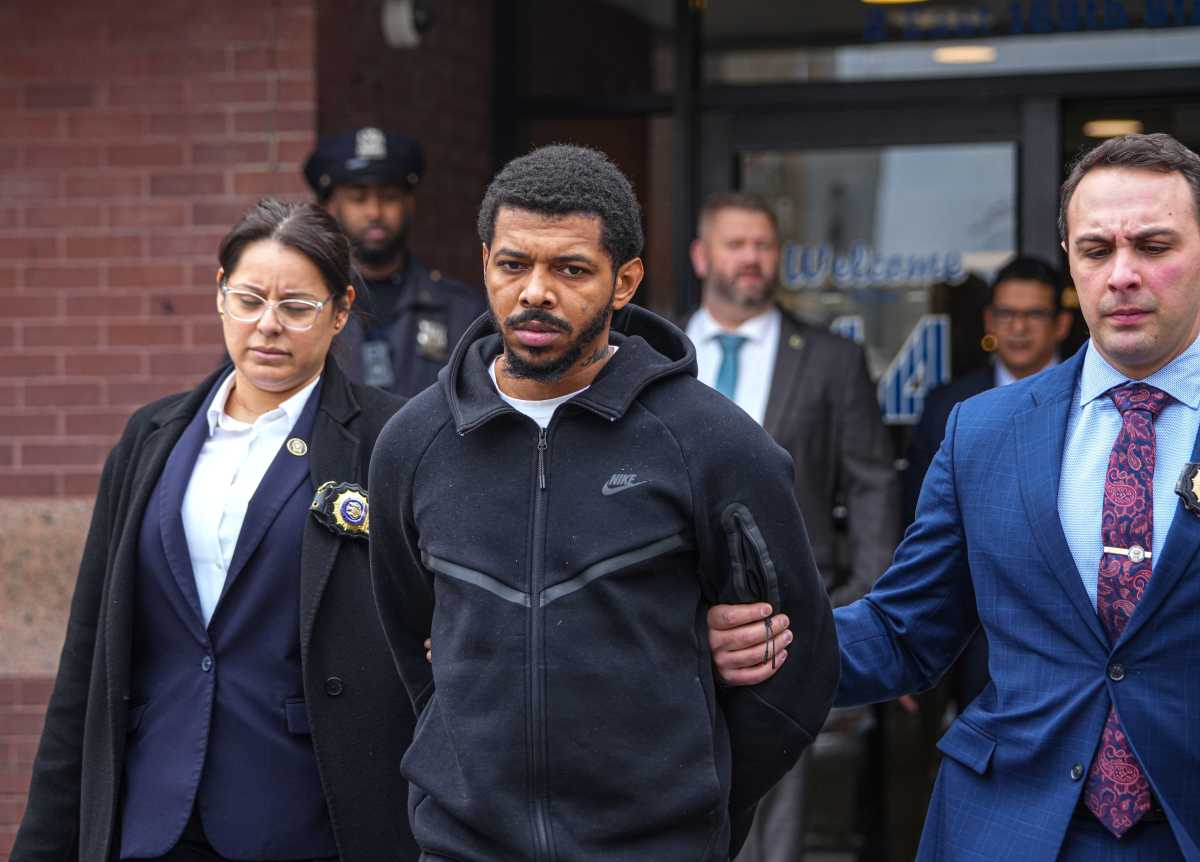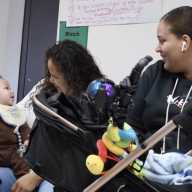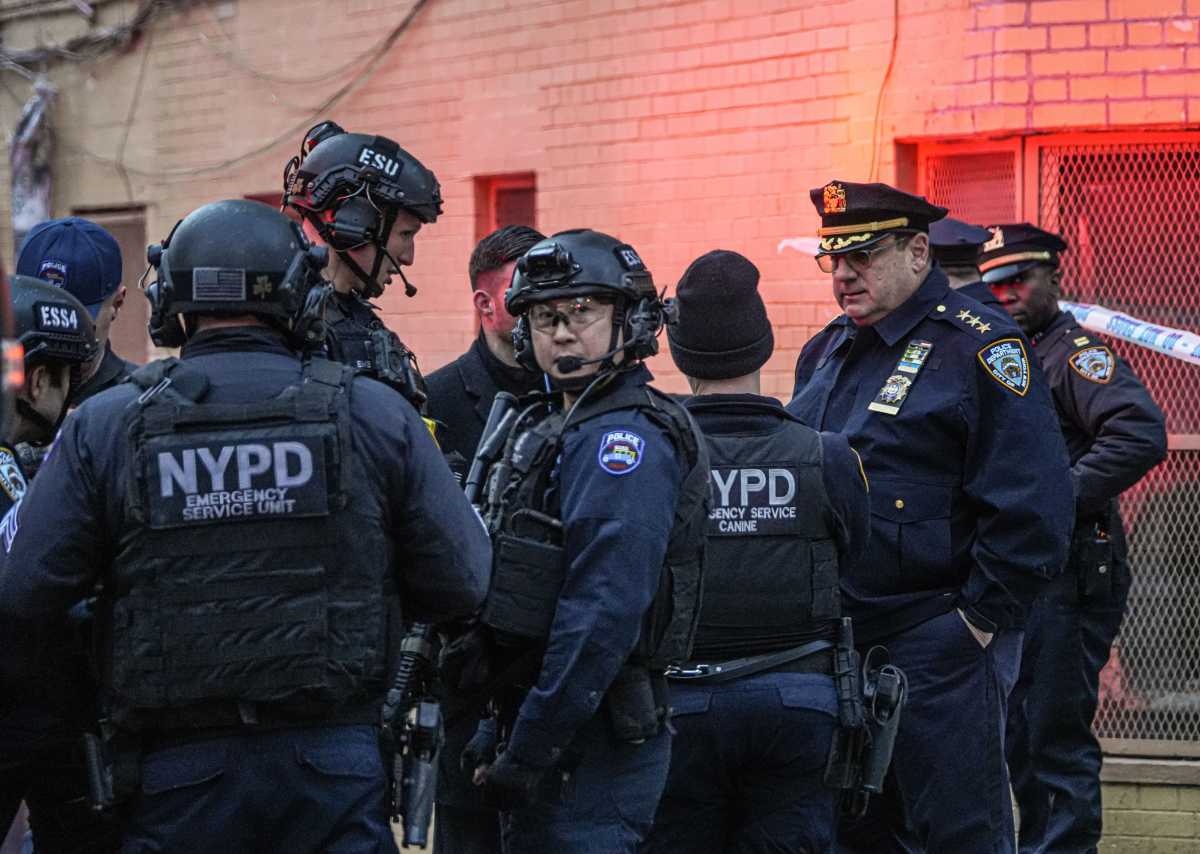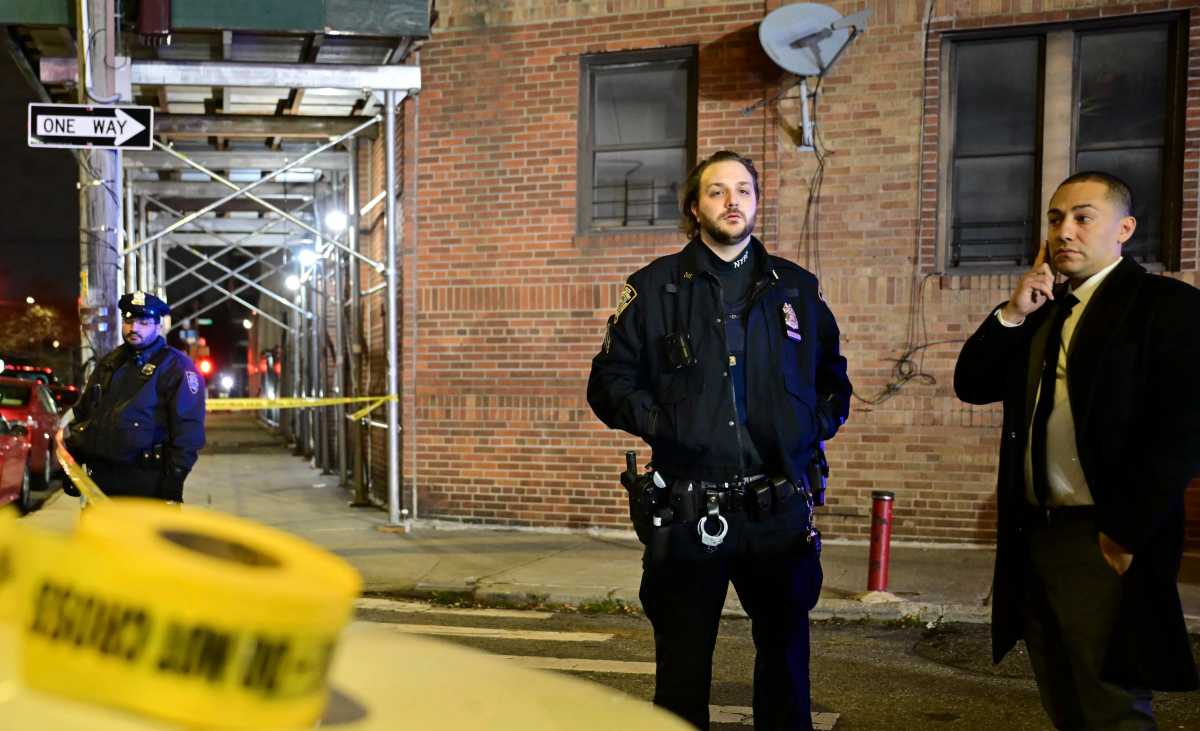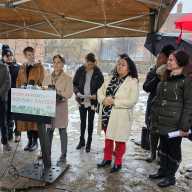Community members, advocates, and elected officials gathered at the Bronx Museum of the Arts on Monday to testify at a public hearing on revising New York City’s governing document—the City Charter.
The hearing, hosted by the City Council-appointed Charter Revision Commission, is part of an ongoing effort to gather input from residents and lawmakers before proposing changes that could appear on the General Election ballot. The City Charter serves as the foundational framework for city government, outlining how agencies are created and how power is distributed across various branches and local bodies.
Testimony before the commission—formally known as the Commission to Strengthen Local Democracy—centered heavily on frustration with the city’s land use and housing policies. Many Bronx residents said they felt misled or excluded from key decisions around rezoning and development, accusing city agencies of sidelining community boards and offering little transparency throughout the process.
Bronx Borough President Vanessa L. Gibson, who spoke at the hearing, pointed to a recent example: the city’s decision to open a 2,200-bed migrant shelter in the South Bronx in February. The shelter was established as the city closed several others across the five boroughs—but Gibson said South Bronx residents were left out of the planning process entirely.
“Generally, residents understand that there is a crisis,” Gibson told the commissioners. “We will always be sympathetic to that. What we’re not sympathetic of is feeling that we’re pushing a location in our community without any regard for who we are—business owners, property owners, landlords, tenants.”

Delgado has been pushing for a more equitable ULURP process ever since a developer secured a rezoning in her Allerton neighborhood for so-called “affordable housing” that, she says, is priced beyond the reach of local residents. She criticized the city for moving forward with the project despite widespread community opposition and for accepting what she described as misleading affordability calculations presented by the developer.
Delgado and dozens of her neighbors wrote to the Director of Planning and Development at the Bronx Borough President’s Office complaining about the decision to advance the rezoning. Delgado also contacted the City Planning Commission, Housing Preservation and Development, submitted testimony to the City Council Subcommittee for Zoning and Franchises and reached out to her council member’s office – all of whom said they couldn’t do anything about it, according to Delgado.
She hopes the charter revision will address the issue of development proposals that mislead communities, and she proposed tying rezoning approvals to developers’ commitments—ensuring they follow through on promises made to community boards regarding affordable housing and project specifics.
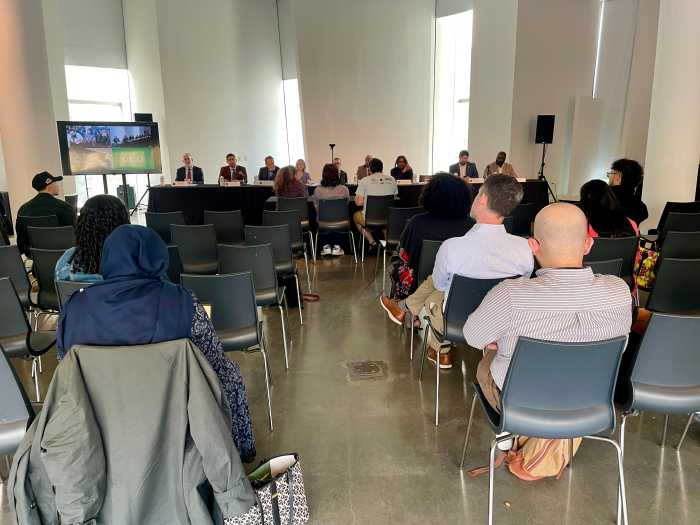
Elected officials also called for revising the City Charter to give communities greater control over neighborhood planning. City Council Majority Leader Amanda Farias testified that the charter revision should help correct “a long history of top-down decisions that truly disenfranchised Black and Brown communities.”
“As we consider changes to the charter, we must protect and strengthen the tools that allow communities meaningfully shape their future,” Farias told the commission.
However, not all advocates agreed that increasing the power of community boards and council members would lead to better outcomes. Michelle de la Uz, executive director of the Brooklyn-based affordable housing nonprofit Fifth Avenue Committee, argued that districts and council members failing to meet their fair share of housing development should lose their voting power in the rezoning process until they demonstrate progress toward affordable housing goals.
Borough President Gibson also suggested there should be consequences for communities that are not contributing enough affordable units to help the city’s housing crisis. She suggested that communities that are not meeting goals for their fair share of housing should have capital resources “redirected.”
“ When we say that it is a shared responsibility, we need to mean that with actions,” Gibson said. “All 59 community boards must do their fair share and it’s really unfair that the same majority of community boards have really shouldered the burden of development of affordable housing.”

